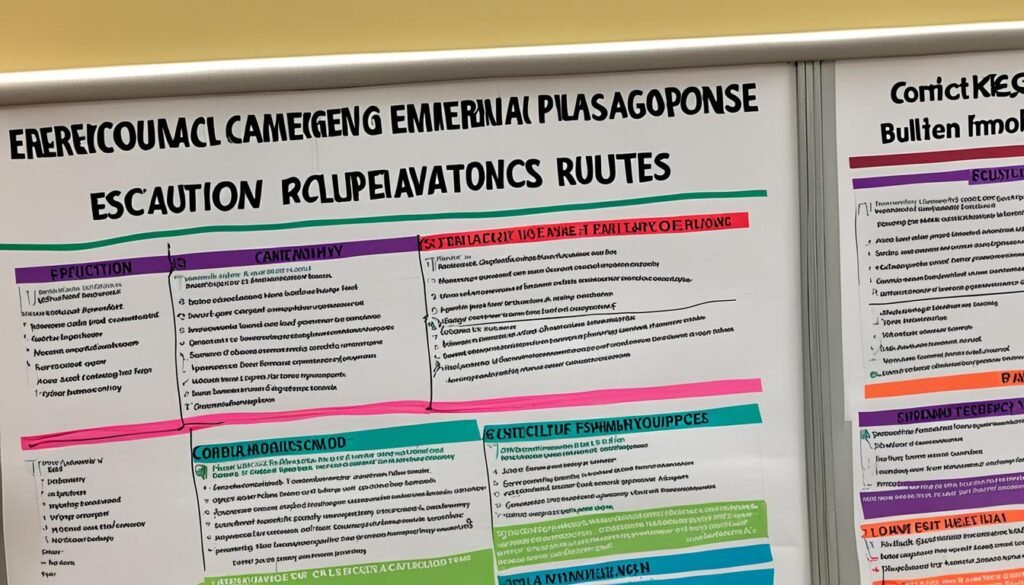Did you know only half of American families are prepared for an emergency? Think about that. Being ready for an unexpected event is vital. It’s essential for your family’s safety. By creating an emergency plan, you can feel confident during disasters.
Talk about how you’ll get emergency alerts and where you’ll find shelter. Discuss how you’ll leave your home and how you’ll stay in touch. Remember to consider everyone’s needs. This includes ages, dietary and medical needs, and even your pets. This way, your plan will care for everyone in the family.
Key Takeaways:
- Create an emergency response plan with your family to ensure safety and coordination in critical situations.
- Discuss important questions such as emergency alerts, shelter plans, evacuation routes, and communication methods.
- Consider the specific needs of each member, including age, responsibilities, dietary and medical needs, disabilities, language, culture, and pets.
- Develop a comprehensive family emergency plan and practice it regularly with your family or household.
- Being prepared is key to effectively navigating through unexpected emergencies or natural disasters.
Key Emergency Response Team Roles
When making an emergency response plan, it’s crucial to give each family member a specific role. This helps ensure that everyone knows what to do during a crisis. Let’s talk about some vital roles you should think about:
- Leader/Coordinator: The person in charge needs to lead, coordinate, and make essential calls. They must communicate well, stay calm, and assign tasks efficiently.
- First Aid Specialist: This person must know first aid and be ready to help anyone hurt right away.
- Communications Coordinator: Someone has to manage all communication tools to keep the team updated. This includes phones, radios, and any other devices.
- Evacuation Coordinator: There needs to be a plan for getting out safely. This role includes making sure everyone knows where to go and meet.
- Search and Rescue Specialist: This team member uses their training to find and help people in need.
- Supplies Manager: It’s their job to keep an eye on supplies like food, water, and first aid. They ensure everything is ready and reachable.
- Pet/Service Animal Handler: Pets and service animals need someone to look after their needs during emergencies.
- Documentation and Records Keeper: Keeping track of vital details and instructions is this role’s duty. This is to make sure nothing important is missed out.
Having these roles in place means your team has a solid plan for when emergencies strike. It’s important to go over and practice this plan. This ensures all know their duties well.
The Importance of Emergency Response Team Coordination
When we talk about being ready for emergencies, having a well-oiled emergency response team is key. Whether facing a fierce storm or a health crisis, a coordinated team is vital. It can greatly impact everyone’s safety and health.
Good coordination means each person knows their job. They know what they should do and how to help in response efforts. This clear understanding cuts down on confusion and helps things run smoothly when stress is high.
Also, working well together lets the team share important messages fast. In a crisis, sharing information quickly and clearly is very important. By setting up ways to talk to each other beforehand, teams can make smart decisions fast. This leads to a quicker and better response to the situation.
Last, team coordination helps everyone work toward the same important goal: keeping people safe. When team members combine their skills, they handle emergencies better. Together, they can use their resources and knowledge to give stronger support. This teamwork increases the chance of a positive result.


